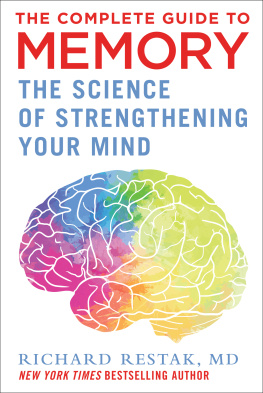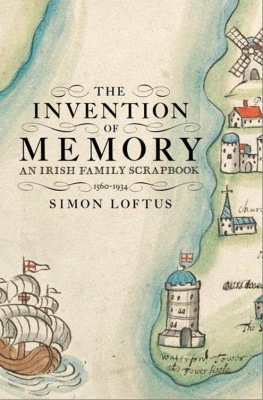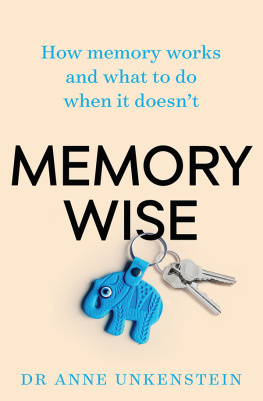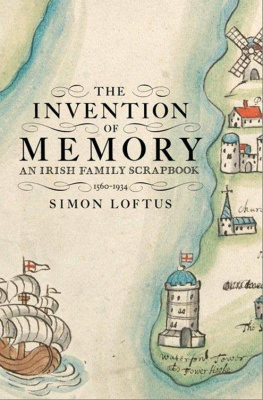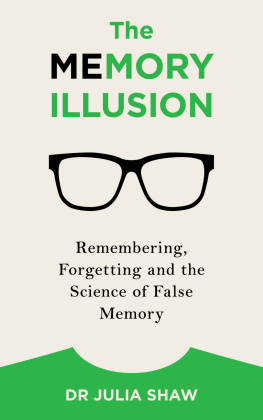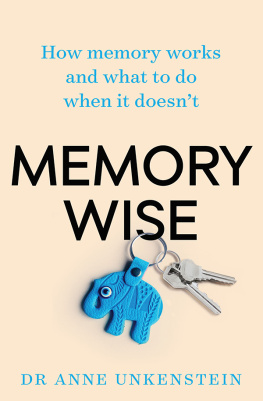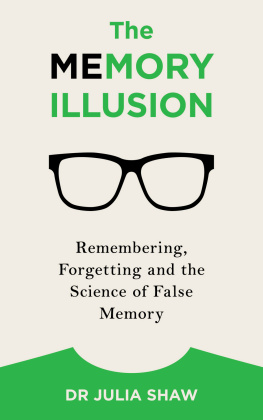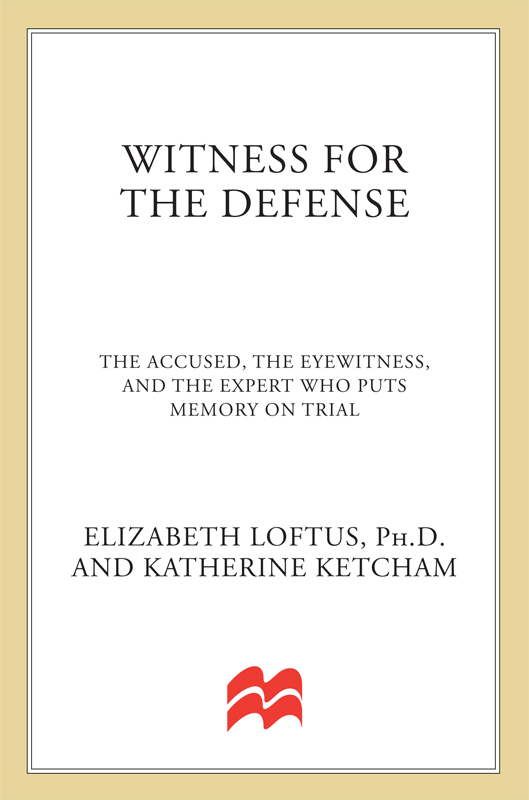Contents
Guide

The author and publisher have provided this e-book to you for your personal use only. You may not make this e-book publicly available in any way. Copyright infringement is against the law. If you believe the copy of this e-book you are reading infringes on the authors copyright, please notify the publisher at: us.macmillanusa.com/piracy.
Contents
We dedicate this book to the women and men who have been wrongfully accused, convicted, imprisoned, or have otherwise suffered because of faulty eyewitness testimony.
Hamlet: Do you see yonder cloud thats almost in shape of a camel?
Polonius: By the mass, and tis like a camel, indeed.
Hamlet: Methinks it is like a weasel.
Polonius: It is backed like a weasel.
Hamlet: Or like a whale?
Polonius: Very like a whale.
William Shakespeare, Hamlet, Act III, scene ii
A book of this nature could not have been written without the cooperation of numerous individuals personally involved in the cases described. The authors owe a great debt of thanks to the defendants, their family members, lawyers, investigators, jurors, and others whose lives were caught up in these tragic dramas. We would like to offer special thanks to Richard Hansen, David Allen, Tom Hillier, Les Burns, and Joanne Spencer.
The book weaves basic psychological research into the fabric of these real-life cases involving murder, rape, and other heinous crimes. For supporting the basic research, Elizabeth Loftus is especially grateful to the National Science Foundation and the National Institute of Mental Health.
We express great gratitude to our literary agent, Carole Abel, who helped pull this book out of the dream stage into reality.
Several friends and colleagues commented on chapters and gave us valuable suggestions for revising. Among the hardest-working were Billy Heath, Jean McMenemy, Laurie Becker, Missy Peterson, and Karen Preston. Marcia Gossard provided valuable research assistance.
Finally, we thank our families and close friends. In particular, Geoffrey Loftus and Patrick Spencer provided love and support. And Kathy Ketcham would like to thank her three young children, Robyn, Alison, and Benjamin, for everything and then some.
Witness for the Defense is a collection of true stories based on Dr. Elizabeth Loftuss personal experiences as an expert witness. It is our goal to use these real-life courtroom dramas as a vehicle for conveying information about psychology in general and memory in particular.
Our material is drawn from trial transcripts, police reports, newspaper accounts, and interviews with witnesses, defendants, defense and prosecuting attorneys, jurors, and family members. Certain scenes have been dramatically re-created in order to convey important ideas or to simplify the story, and trial transcripts and testimony were edited in places to make the material more understandable and readable. We chose to change the names and identities of certain individuals to protect their privacy; in those cases, the name is italicized the first time it appears.
In order to tell these stories, we have had to rely on the memories of those involved in the dramas as well as our own personal memories of the events described. Although we have struggled to correct obvious biases and base our accounts on the known and undisputed facts, it is unavoidable that these retrospective interpretations will contain memory flaws.
We know all too well from the psychological research and the experience of writing this book that memory is not always the same thing as the truth.
I dont think a lot of people realize how important innocence is to innocent people.
From the movie A Cry in the Dark
I walk up the narrow wooden aisle, the silence amplified by the clicking of my heels on the slick polished floor. The court clerk, an ancient, grandmotherly type with pink rouge in perfect circles on her cheeks, is waiting for me. I raise my hand and listen to her recite by heart the litany: Do you swear to tell the truth, the whole truth and nothing but the truth, so help you God? Automatically I answer, I do. The clerk retreats, and I walk the few steps to the wooden box, step up, sit down, facing the courtroom. All eyes are fixed on me.
The defense attorney approaches the witness box, nods his head at me. He is defending a twenty-three-year-old man accused of breaking into a home in the upper-middle-class community of Van Nuys, California, and shooting to death an elderly man.
Would you state your name, please?
My name is Elizabeth Loftus. I know the routine by heart and spell out my last name for the court reporter. L-O-F-T-U-S.
Dr. Loftus, the defense attorney says, his deep voice resounding throughout the courtroom like a baritone solo in a church choir, what, exactly, is your profession or occupation?
Im currently a professor of psychology at the University of Washington in Seattle.
Could you tell us a little bit about your educational background and teaching experience?
For the next ten minutes I recite my credentialsthe Ph.D. from Stanford, the honorary degrees, memberships in various professional societies, honors, awards, books and articles published. The twelve members of the jury look slightly boredOkay, okay, shes an expert, lets get on with it.
Have you ever qualified as an expert witness in eyewitness identification before? the defense attorney asks me.
Yes, many times; approximately a hundred times.
In this state?
Yes, and in many other states also. Thirty-five states altogether.
All right, the defense attorney says. He walks back to the defense table and shuffles some papers. Im suddenly aware of the sounds of legs being crossed, feet scraping against the wooden floors, throats being cleared. A moment passes and the noise begins to die down.
Dr. Loftus, let me ask youis there a generally accepted theory of how memory works?
There is a generally accepted theory in our field that memory doesnt work like a videotape recorder. We dont record an event and then play it back later. The process is much more complex
I talk, then, about the acquisition, retention, and retrieval stages of memory, reciting all the details that I have recited so many times in the past. The prosecutor rolls a pencil between his fingers and watches me, his skepticism evident in the frown creasing his face. He is hoping to find a little hole, a tiny rip in the fabric of my testimony where he can dig in and begin to tear me apart.
I talk for nearly two hours about the way memory works and the way it fails. At 11:00 A.M ., the judge calls a fifteen-minute recess. I stand up, step down, and walk across the courtroom, headed out to the hallway for a drink of water and a change of scenery. When I pass the defense table, the defendant raises his eyes and looks directly at me. I see the tiny beads of perspiration on his upper lip and notice how his starched shirt cuts into the soft flesh of his neck. He is a mechanic, twenty-three years old, married, has two children, and is studying in night school to get his high school degree. Ive read hundreds of pages in preparation for my testimony, and those are among the few personal facts I encountered about the defendant. Sometimes it is better not to know too much.
He is looking up at me with such hope, his fear palpable in the still air of this stark, windowless courtroom, that I am struck by the incongruity of this face-to-face meeting. What am I doing here? What business does a research psychologist have in a court of law, offering facts taken from countless scientific experiments, hoping to communicate that our memories are sometimes distortions of reality, inaccurate images of the past?


